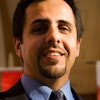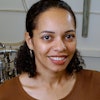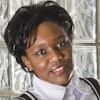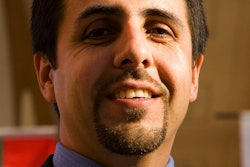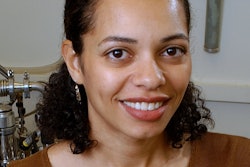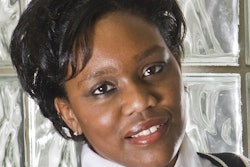At the start of each semester, the first thing Dr. Ahna Skop wants to know from her genetics students is if they know how to cook.
“The best advice I ever received was ‘never trust a scientist who can’t cook,’” Skop says. “Cooking is what we do in a lab. Each experiment is a recipe.”
Cooking is more than a metaphor for this highly respected geneticist. During her graduate studies she, like many uncertain students, decided she should have a back-up plan in case a career in science was not to be. “I am dyslexic. I do terribly on tests, and my failed tests were evidence that maybe I should not be in science,” she says. “I decided, since I love to cook, I would be a chef.”
But in fact, a career as a geneticist was in the recipe cards for Skop. Since accepting a tenure-track position at the University of Wisconsin-Madison three years ago, Skop’s research on cell division has been widely recognized. In November, she was one of 20 scientists to win the National Science Foundation’s Presidential Early Career Awards for Scientists and Engineers. Skop was honored for her groundbreaking research on finding links between how animal and plant cells divide. Understanding how and why cells divide is critical to finding cures for cancer and other diseases.
“We had a need for expertise in this area,” says Dr. Michael R. Culbertson, chair of the UW School of Medicine and Public Health/College of Agricultural & Life Sciences. “Ahna fit the bill perfectly because of her unique expertise in the emerging area of genetics called proteomics, which makes use of novel approaches to identify proteins involved in cellular processes.”
Skop attributes her success to possessing a driving need to be creative. “There is a huge amount of creativity in science,” she says. Skop likes to visualize her lab work from a painter’s perspective by recreating cells and amoebas on her computer. She calls it the “beauty of biology,” and every other year she curates the C. elegans Art Show at the International C. elegans Meeting, sponsored by the Genetics Society of America.
Her parents, who are both teachers and artists, nurtured that creative spirit. Skop, the oldest of four children, recalls growing up in a Kentucky household that was filled with student artists. Though she knew she had an artistic interest and talent, it was science that caught her imagination.

